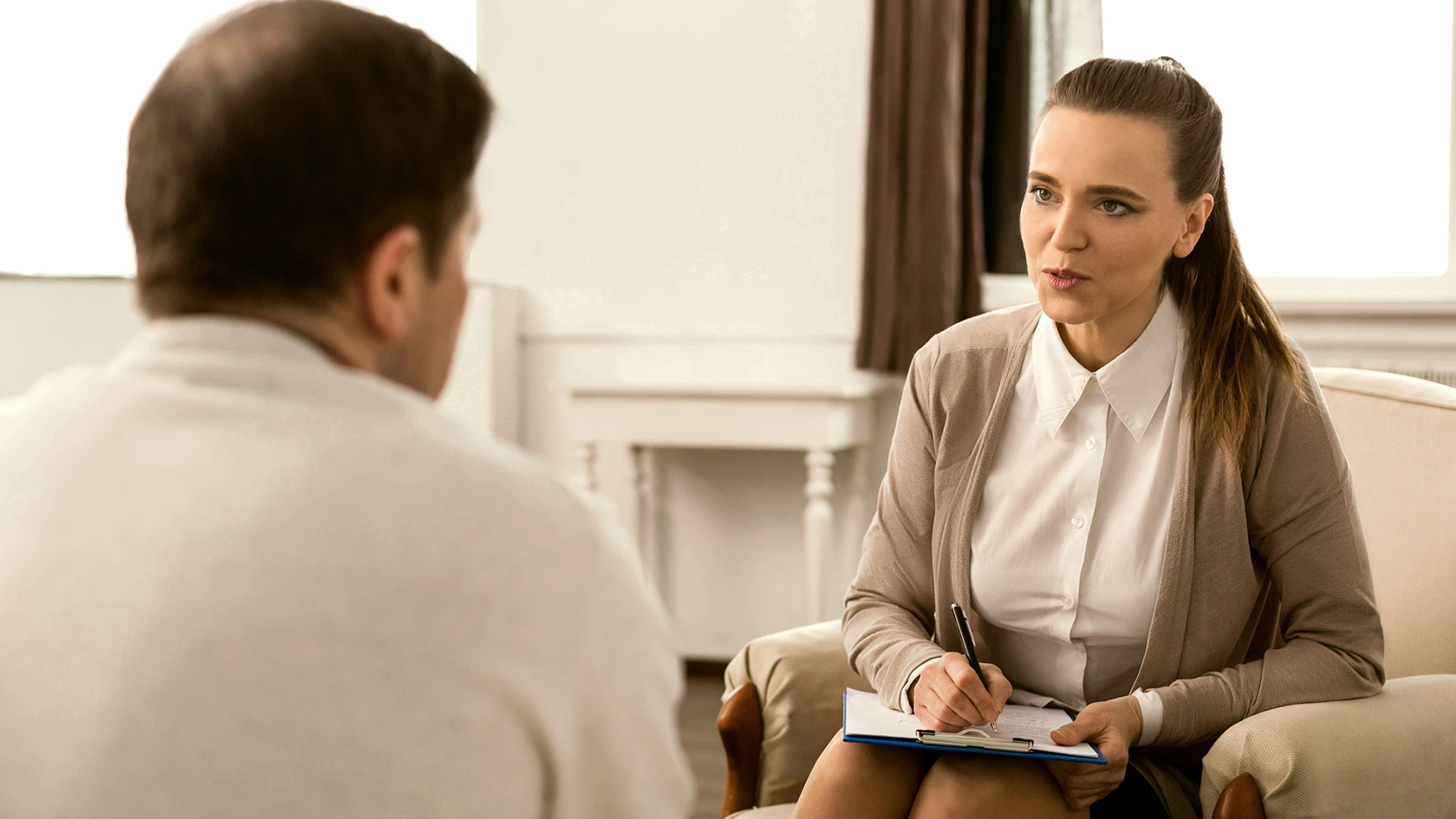
How to Find a Therapist or Counsellor in BC (British Columbia)
Find a qualified therapist or counsellor in BC. Explore therapy options, counselling styles, and tips to choose the right support.

Therapy in British Columbia isn’t one-size-fits-all. With so many counselling styles, therapy approaches, and professional backgrounds to consider, knowing where to begin is often the hardest step. From clinical counsellors to registered therapists, you’ll find a wide range of therapists and approaches designed to meet different needs and personalities. The real challenge is figuring out which style, method, or professional will actually work best for you.
Whether you are looking for support with stress, anxiety, relationships, or personal growth, having clear guidance makes the process easier. This guide will walk you through the resources, therapy options, different counselling approaches, and evaluate professional associations, so you can confidently find and choose the right therapist to support your well-being.
Choosing the Right Therapist in British Columbia

When looking for counselling services in British Columbia, it helps to know the types of professionals you can turn to and the different approaches they bring to therapy. BC has a wide network of registered clinical counsellors (RCCs), psychologists, registered social workers, art therapists, and registered therapeutic counsellors. Each one has their own style of clinical counselling or psychotherapy, so finding the right fit often depends on your personal needs and comfort level.
Types of Therapists Available in BC
- Registered Clinical Counsellors (RCCs): RCCs are trained in clinical counselling and often work with people facing stress, trauma, or relationship struggles. They focus on creating a supportive space where you can safely explore your challenges and learn practical coping skills.
- Psychologists: A psychologist usually has advanced training in counselling psychology and can provide in-depth assessments alongside therapy. They often help with more complex issues like eating disorders, obsessive-compulsive disorder (OCD), anxiety, or depression, while also supporting personal growth and healthier relationships.
- Registered Social Workers: Social workers don’t just offer counselling services, they also connect clients with community supports and resources. They’re a great choice if you’re navigating big life changes, family difficulties, or added pressures related to work, finances, or housing.
- Registered Therapeutic Counsellors & Art Therapists: A registered therapeutic counsellor, on the other hand, might use tools like mindfulness, body-based practices, or expressive activities to support emotional balance and personal growth. An art therapist helps you use creativity as a way to heal, making it easier to process feelings that can be tough to explain.
Finding the Right Therapy for You
Different kinds of therapy are meant to help with different struggles, so it’s a good idea to explore which approach feels right for you.
- Cognitive Behavioural Therapy (CBT): Often used for OCD, perfectionism, and internet gaming addictions, CBT helps people recognize unhelpful thought patterns and replace them with healthier ones.
- Dialectical Behaviour Therapy (DBT): Dialectical behaviour therapy supports emotional regulation, mindfulness, and coping skills, making it useful for relationship addictions and managing intense emotions.
- Emotion Focused Therapy (EFT): EFT is common in couples and family counselling, helping to improve communication and resolve relationship or family conflicts through stronger emotional connection.
- Internal Family Systems (IFS): IFS explores different parts of the self to process trauma and overcome personal struggles, creating more inner balance and resilience.
Online vs. In-Person Therapy Options in BC
- In-person counselling: Great if you like face-to-face conversations and feel more comfortable opening up in a dedicated space.
- Online counselling sessions: A flexible choice, especially for people in rural or remote areas, since it lets you connect with a counsellor right from home.
Evaluating Therapist Credentials and Experience
When choosing a therapist, it helps to check their qualifications and experience.
- Membership in associations: If they’re part of a recognized professional group, it shows they’re serious about keeping high standards and providing ethical care.
- Experience in specialized areas: Look for counsellors who have worked with specific challenges such as child and youth counselling, substance use, pornography addictions, or gambling addictions, depending on your needs.
- Verified credentials: Ensure the therapist is a certified RCC, CCC, or holds accreditation from a trusted professional body, as this confirms their training and accountability.
Beyond credentials, the right match often comes down to practical and personal factors. Consider whether the counsellor is located near your home or if they offer flexible online and in-person sessions, which can make therapy more accessible.
Many counsellors also provide free consultations, giving you a chance to see if their style and communication feel like a good fit. Above all, check that their approach matches what you’re looking for, so your sessions feel supportive and actually work for you.
Resources for Finding a Therapist or Counsellor in BC

Professional Associations and Directories
The Federation of Associations for Counselling provides a list of organizations for counselling therapists of Canada, giving residents more options to explore when searching for support.
The BC Association of Clinical Counsellors (BCACC) offers a directory of registered clinical counsellors (RCCs), making it easier to find counselling services in your area. Similarly, the Canadian Counselling and Psychotherapy Association (CCPA) connects clients with Canadian Certified Counsellors (CCC) and other qualified professionals.
Community Mental Health Centers and Public Services
The Canadian Mental Health Association (BC Division) works to provide counselling and a wide range of mental health care services across the province. For Indigenous communities, the First Nations Health Authority delivers culturally sensitive therapy and mental health support tailored to specific community needs.
Online Platforms and Telehealth Services for BC Residents
Virtual counselling are increasingly being recognized, with many professionals now offering online counselling sessions and telehealth services. Platforms make it easier to connect with counsellors and psychotherapists who provide psychotherapy across BC, especially for those living in rural or remote areas.
Referrals from Doctors, Friends, or Family
Sometimes the best way to find counselling is through word of mouth. Getting referrals from your doctor, friends, or family can be a great way to find counsellors or psychotherapists who’ve already helped someone you trust.
Steps to See a Counsellor

Preparing for Your First Counselling Session
Start by getting clear on what you’d like help with, maybe it’s burnout, relationship struggles, anxiety, depression, or even something like internet addiction. It also helps to review your health insurance plans to check if counselling sessions are covered by insurance, which can reduce the financial stress of ongoing therapy.
Identifying Personal Needs
Take time to clarify what kind of support you’re looking for. This may include help with mental health and substance use, eating disorders, obsessive compulsive disorder (OCD), or relationship addictions. From there, decide which type of therapy—such as cognitive behavioural therapy or dialectical behaviour therapy—feels most appropriate for your situation.
Setting Realistic Goals
Work with your counsellor to set clear, achievable objectives that you can measure over time. Your goals should cover both the short term—like easing daily stress—and the long term, such as building lasting mental health and well-being.
Initial Consultation Process
Many counselling therapists provide free or low-cost consultations, giving you the chance to discuss your concerns and ask questions about their approach. This first meeting is an opportunity to explore your personal challenges and begin shaping a treatment plan that feels like the right fit for you.
Evaluating Your Counselling Experience

It’s a good idea to pause every now and then and think about how your counselling is going. Ask yourself if it’s really meeting your needs, this makes it easier to figure out what’s working and what might need adjusting.
- Progress Assessment: Keep track of your personal growth by noticing changes in mood, habits, or relationships. Regular self-reflection helps you see whether counselling is making a real difference in your daily life.
- Therapeutic Alliance: Pay attention to your comfort level and the trust you share with your counsellor. A strong therapeutic alliance often leads to more effective sessions and better outcomes.
- Goal Achievement Tracking: Review how well you’re moving toward your set goals and personal challenges. This can include reducing stress, improving relationships, or managing specific issues you brought to counselling.
- Communication Effectiveness: Check if you really understand your counsellor’s feedback and if you feel truly heard in your sessions. Good communication makes sure your time together stays helpful and on track.
- Treatment Plan Reviews: Revisit your treatment plan regularly to ensure the number of sessions, therapy type, and overall progress remain aligned with both your needs and professional requirements.
- Feedback Mechanisms: Offer honest feedback about what works best for you and what doesn’t. This allows your counsellor to adjust therapy methods so they better suit your journey.
Final Thoughts
Finding a therapist or counsellor in BC is ultimately about choosing someone who feels like the right fit for you. While credentials, experience, and therapeutic approaches matter, the most important factor is whether you feel supported and understood. Check out online directories, community resources, or even free consultations to see who feels like the right match for you.
It’s totally normal if it takes a little time to find the person who feels right. Whether you go for in-person sessions or online counselling, the main goal is having a safe space where you can grow, heal, and work on your well-being in a way that fits you.
Frequently Asked Questions
How do I start looking for counsellors in British Columbia?
Finding the right therapist starts with knowing where to look and what to consider.
Professional directories: Many platforms list qualified counsellors in British Columbia, making it easier to narrow down professionals based on location, specialty, and availability.
Explore counselling BC options: Local directories, clinics, and community services provide access to both private and public therapy resources across the province.
Check therapist backgrounds: Look for profiles of counsellors and therapists to understand their approaches, from cognitive behavioural therapy to emotion-focused work.
Referrals and recommendations: Asking a doctor or trusted source for referrals ensures you connect with a reliable mental health professional.
Initial consultations: Free or low-cost introductory sessions allow you to see if the therapist feels like a good fit before committing to ongoing psychological services.
What factors should I consider when I choose a counsellor in BC?
Making the right choice means balancing professional qualifications with personal comfort.
Credentials and associations: Ensure the therapist is part of recognized associations for counselling therapists, which reflects commitment to ethical practice.
Specialization match: When you choose a counsellor, consider whether their training aligns with your needs, such as trauma support or addiction recovery.
Location convenience: If you live in Vancouver or nearby areas, in-person sessions might be more practical, while remote therapy helps clients in rural B.C. regions.
Personal comfort: The bond you form with your counsellor often determines the success of therapy, so trust and communication are essential.
Flexibility: Consider whether they provide online or hybrid sessions, giving you the option to switch between in-person and virtual psychological services.
How do professional organizations support counselling in BC?
Associations play a vital role in maintaining standards and connecting people with trusted therapists.
Association of Cooperative Counselling Therapists: This group links people in B.C. with qualified professionals and makes sure ethical practice is always a priority.
Cooperative Counselling Therapists of Canada: As a national body, it strengthens professional networks and makes therapy more accessible for Canadians.
Standards of care: Associations for counselling therapists establish training requirements, codes of ethics, and professional accountability.
Public directories: Many associations have member listings, making it easier for people to find certified mental health professionals nearby without the endless Googling.
Continuing education: These groups also keep counsellors learning through ongoing training, so they’re always up to date with the best ways to support clients.
What issues can counselling address in British Columbia?
Therapists across the province help with a wide range of mental health challenges.
Emotional well-being: Counselling BC options include therapy for stress, anxiety, depression, and relationship struggles.
Addiction recovery: Professionals support individuals, including substances addictions treatment, which often involves structured therapy plans.
Modern concerns: Counsellors don’t just help with stress or anxiety, they also tackle newer issues like online gaming addiction, which is becoming a real challenge for a lot of young people.
Family support: Therapy isn’t just for the individual; it can also give families and friends tools to better support a loved one and improve how everyone communicates.
Personal growth: Beyond crisis support, psychological services help with self-improvement, resilience, and long-term life goals.
How can I afford counselling services in BC?
Costs vary, but several options exist to make therapy more financially manageable.
Extended health coverage: Many insurance providers cover counselling sessions, reducing the out-of-pocket costs for clients.
Workplace benefits: Some employers include psychological services under employee wellness or assistance programs.
Sliding scale fees: Some counsellors and therapists lower their rates depending on your income, so getting help doesn’t have to break the bank.
Public resources: Community health centres and nonprofits across B.C. often offer free or low-cost therapy, making support more accessible to everyone.
Consultation savings: Many counsellors offer a free first session, so you can test the waters before deciding to commit.
Check out more helpful articles
Lorem ipsum dolor sit amet, consectetur adipiscing elit, sed do eiusmod tempor incididunt ut labore et dolore magna aliqua. Lorem ipsum dolor sit amet, consectetur adipiscing elit, sed do eiusmod tempor incididunt ut labore et dolore magna aliqua.
I Hate My Dad: Reasons Why You Feel This Way and How to Cope
Struggling with thoughts like “I hate my dad”? Learn the reasons behind these feelings and explore healthy ways to cope and heal your relationship.

I Hate My Mom: Why You Might Feel This Way and How to Heal Your Relationship with Your Mother
Struggling with “I hate my mom” feelings and family conflict? Learn how to cope with strong emotion, set boundaries, and heal your relationship with your mother.

I Don't Want to Do Anything: Why You Feel Mentally Exhausted and What You Can Do About It
Feeling like you don’t want to do anything? Find out why you feel unmotivated and learn practical ways to restore your motivation, balance, and mental well-being.

Contact US
Know who you want to book with?
Book Online HereHave questions about counselling or something else?
Call or email us.
Want help choosing the right therapist? Complete our connect form below.
We are ready and looking forward to meeting you. Get started today by clicking the link below and booking your free 15-minute discovery call. All our services are private and confidential.

Disclaimer: Content on this website is for informational purposes only. Visiting this website does not establish any type of therapist-client relationship with Upstream Counselling or its staff. Information obtained from this site does not substitute for a thorough medical and/or psychiatric evaluation by an appropriately credentialed and licensed professional.







